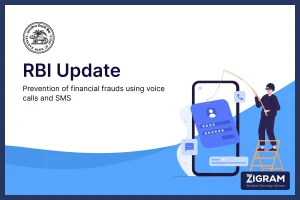Fintech or financial technology companies are on the rise and they are giving tough competition to traditional financial service providers, with great speed, convenience and increased financial inclusion. With risks such as money laundering, terror financing, and data breaches, these fintech providers are under great scrutiny by regulators as well as the public. Regulators across the globe have come up with several mandates to increase transparency and reduce risk. The sheer volume of new norms to comply with adds to the troubles of financial institutions.

Over the past decade, the regulatory landscape for fintech startups has evolved considerably but there are still some key challenges faced by these companies concerning regulatory compliance.
Complex Regulatory Framework :
The regulations usually change rapidly, requiring startups to stay up-to-date and comply with new rules.
Paucity Of Funds :
Compliance with regulations can be expensive, and fintech startups may not have enough funds to comply with all requirements.
Operational Resilience :
The operational systems working on compliance and monitoring must be resilient to any interference and must be flexible to any changes and updates.
Privacy :
A march towards data privacy retrenchment at a jurisdictional level is noted because firms are not able to share information within firms. When looking at advanced technologies to fight financial crime, conflicts may arise between technological possibilities and privacy realities.
Customer Profiling :
There has to be a level of human intervention in the decision-making process, and technologies that might appear to profile customers should be reviewed carefully from both a compliance and a legal perspective.
Overcoming these challenges can be tricky especially when balancing the tradeoff between time and resources. There is no one-size-fits-all approach when it comes to startups because each of them has a unique offering with unique regulatory requirements.
With the rise in innovative technology, RegTech (Regulatory Technology) is a crucial domain that helps with all compliance needs, right from data protection and KYC, to monitoring updates in regulations. Not free from limitations, the concern emerges when a RegTech firm doesn’t have in-house compliance subject matter expertise and sells its solution to compliance professionals with little or no technical expertise. Imagine: A RegTech firm states that its AI system reduces transaction false positives by an average of 40%.
But, behind the scenes, the system is learning like a naughty child and over time false negatives sneak in. The compliance professional now has a false perception that the system is watertight. RegTech must ensure to have compliance experts on board, with compliance professionals to skill themselves on the latest technological advances along.
By its very nature, RegTech is a sophisticated technology designed to solve challenges around regulatory compliance, risk management, and data reporting. It’s fast gaining prominence in the local and international financial services industry as firms grapple with seemingly endless and ever-changing regulations and additional data challenges. Building a compliance culture from the very beginning, setting out a budget for compliance needs, and leveraging technology for this purpose can help new-age FinTechs ease into this seemingly daunting aspect of running a startup.
ZIGRAM is the one-stop solution for all your compliance needs. Try our FREE DEMO to experience the AI developed to fight against money laundering.
- #Fintech
- #RegulatoryCompliance
- #RegTech
- #FinancialInclusion
- #MoneyLaundering
- #TerrorFinancing
- #DataBreaches
- #OperationalResilience
- #Privacy
- #CustomerProfiling
- #Challenges
- #InnovativeTechnology
- #Tradeoffs
- #RegulatoryRequirements
- #UniqueOfferings
- #RegulatoryTechnology
- #ComplianceCulture
- #BudgetForCompliance
- #TechnologyAdvances






